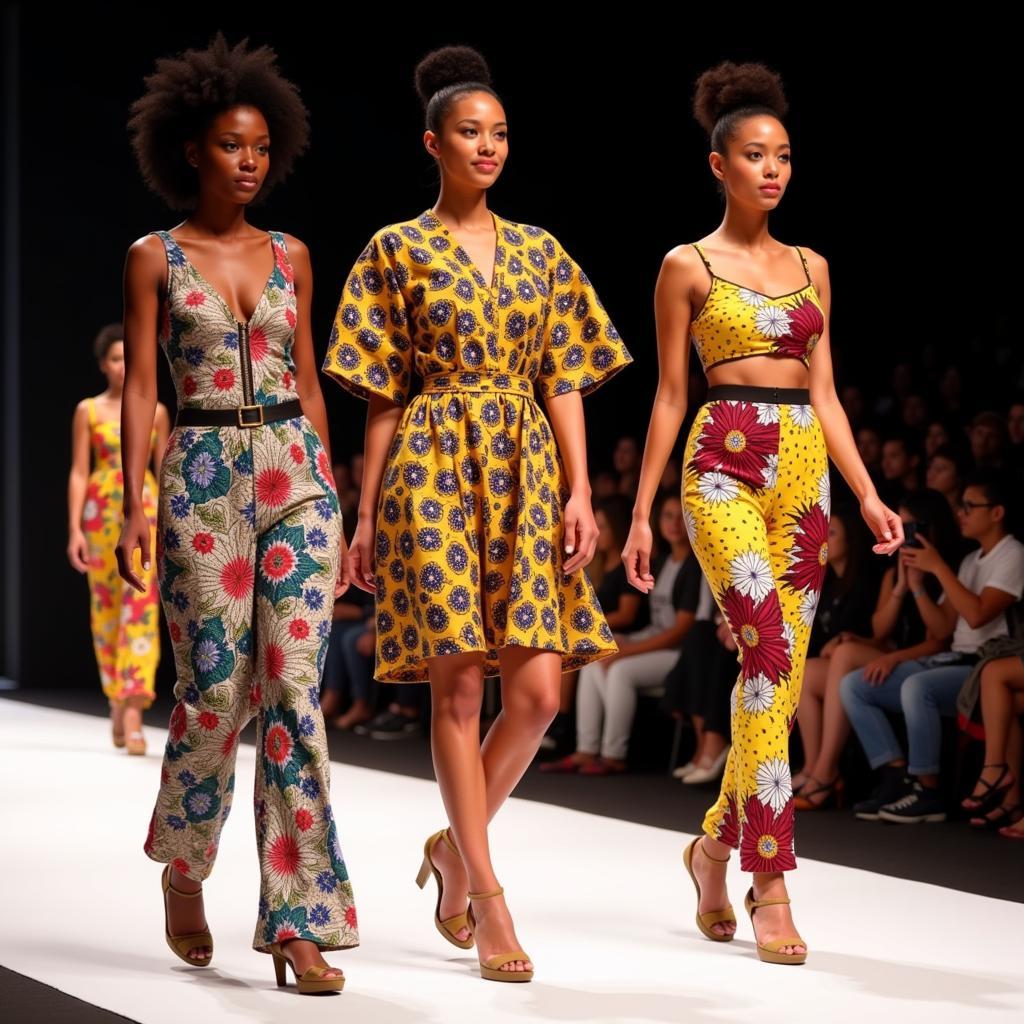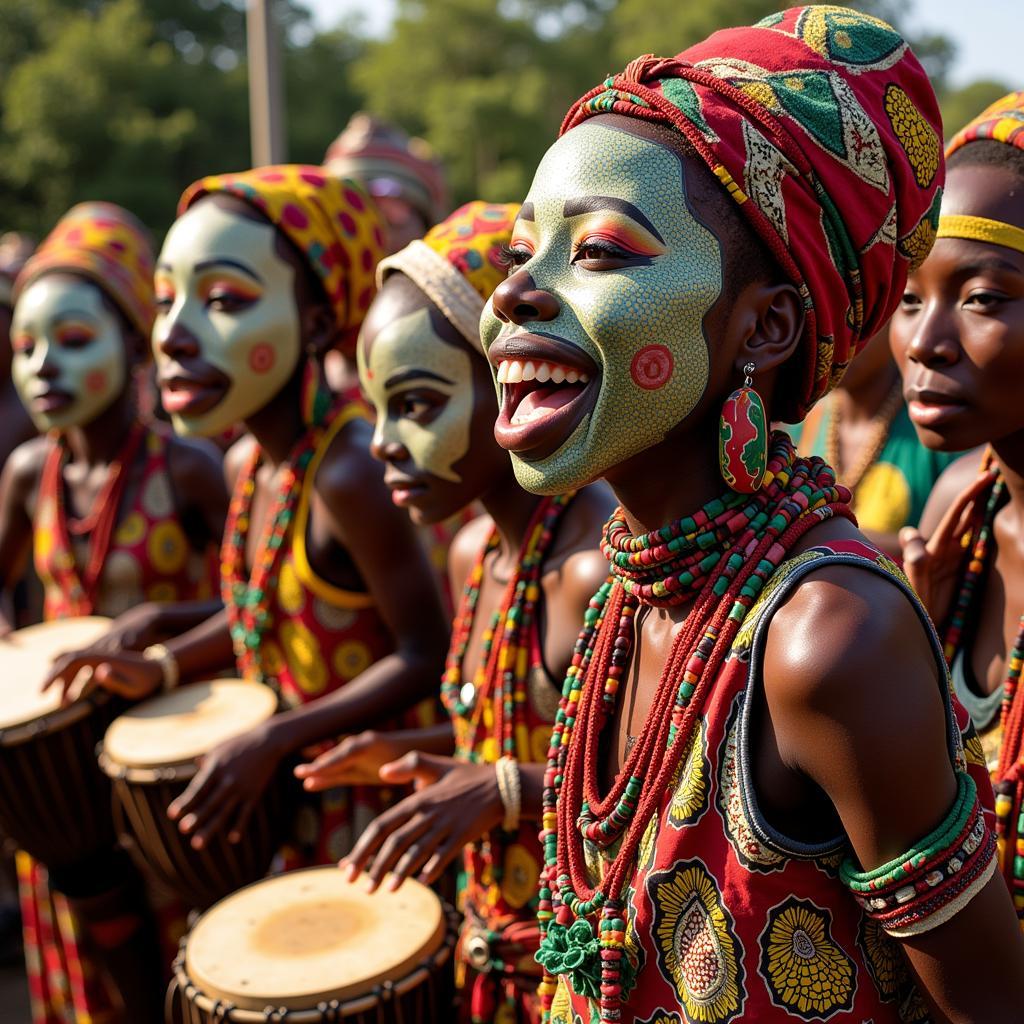Embracing Natural Beauty: A Guide to African Hair Styles
African hair, with its incredible diversity and natural beauty, is truly a sight to behold. From tight coils to loose waves, the range of textures and styles is as vast as the continent itself. For generations, these styles have been more than just aesthetics; they’ve served as a form of self-expression, cultural identity, and even a testament to history. This guide delves into the captivating world of african hair styles natural, exploring their cultural significance, popular trends, and tips for embracing your natural crown.
A Legacy Woven into Strands: The Cultural Significance of African Hair
Across Africa, hairstyles have always held deep cultural and social importance. They can indicate a person’s tribe, age, marital status, social standing, and even spiritual beliefs. For example, in many cultures, elaborate braids were reserved for special occasions, symbolizing prosperity and high status.
A Symbol of Resistance and Resilience
Throughout history, African hair has also been a powerful symbol of resistance against colonialism and oppression. During the transatlantic slave trade, enslaved Africans were often forced to shave their heads, stripping them of their identity and cultural heritage. In defiance, many developed intricate braiding patterns that served as maps to freedom, coded messages, and a testament to their resilience.
Celebrating Natural Texture and Beauty
Today, there’s a beautiful movement towards embracing natural hair textures and styles. More and more people are ditching chemical relaxers and heat styling tools, choosing to celebrate the unique beauty of their natural hair. This shift reflects a broader movement towards self-acceptance, cultural pride, and challenging Eurocentric beauty standards.
Exploring Popular Natural African Hair Styles
The world of natural African hairstyles is incredibly diverse, with countless options to suit every personality and preference. Here are a few popular styles:
1. Braids: An Art Form Passed Down Through Generations
Braiding is a beloved and versatile styling technique in Africa, with endless variations that have been passed down through generations. From cornrows to box braids, Senegalese twists to Fulani braids, each style has its unique history, cultural significance, and aesthetic appeal.
Expert Insight:
“Braids are more than just a hairstyle; they’re a living tapestry of our heritage,” says Abeni Agbonlahor, a renowned natural hair stylist and cultural historian. “Each braid tells a story, connecting us to our ancestors and celebrating the artistry of our culture.”
2. Afros: A Statement of Freedom and Pride
The afro, a voluminous hairstyle achieved by allowing the hair to grow out naturally, is a powerful symbol of Black pride and liberation. It gained popularity during the Civil Rights Movement in the 1960s and has remained a timeless classic, representing self-acceptance and embracing natural texture.
3. Locs: A Journey of Patience and Spiritual Growth
Locs, also known as dreadlocks, are rope-like strands of hair formed by allowing the hair to mat and lock together naturally. They hold deep spiritual significance in many African cultures, representing a journey of self-discovery, spiritual growth, and connection to one’s roots.
african crochet braids are a popular variation, offering a quicker and more versatile way to achieve the loc look.
Nurturing Your Natural Crown: Tips for Healthy Hair Growth
Caring for natural African hair requires a tailored approach that caters to its unique texture and needs.
1. Moisture is Key
African hair tends to be drier than other hair types, making regular moisturizing essential.
2. Gentle Detangling
Detangling natural hair can be a delicate process. Always use a wide-tooth comb or your fingers, starting from the ends and working your way up.
3. Protective Styling
Protective styles, like braids, twists, and locs, can help minimize breakage and promote healthy hair growth.
4. Embrace Your Natural Texture
The key to loving your natural hair is embracing its unique texture and finding styles that make you feel confident and beautiful.
Conclusion
From intricate braids to majestic afros, african hair styles natural are a celebration of heritage, resilience, and self-expression. By embracing our natural textures and exploring the rich history woven into each strand, we can cultivate a sense of pride, confidence, and connection to our cultural roots.
FAQs About Natural African Hair Styles
1. What are some tips for transitioning to natural hair?
2. How often should I wash my natural hair?
3. Are there any specific products I should use for my natural hair type?
4. What are some ways to prevent breakage and promote hair growth?
5. How can I find a stylist who specializes in natural African hair?
For more insightful content about African beauty and culture, explore these articles:
- African American Natural Hairstyles for Kids
- African Beauty Poems
- African Hair Braiding Shops in Memphis TN
- African Hairstyle Female
Need personalized advice or assistance with your natural hair journey?
Contact our dedicated team at:
Phone Number: +255768904061
Email: [email protected]
Address: Mbarali DC Mawindi, Kangaga, Tanzania.
We’re available 24/7 to provide expert guidance and support.


